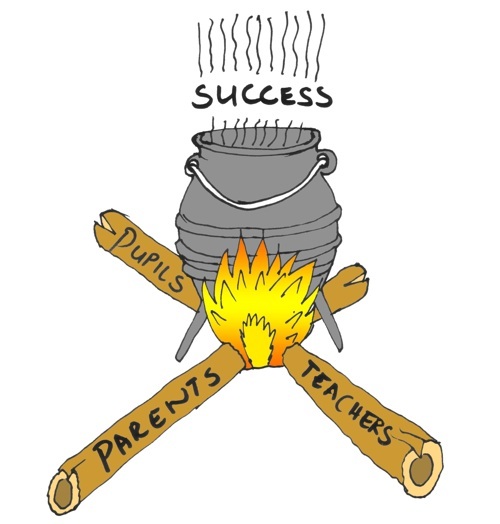No one can deny that Namibia’s education system is in a state of crisis. A university degree once signalled true academic achievement and set the recipient apart from others, but now has become as banal as attaining a driver’s license.
The average high school certificate only qualifies the holder to work at a grocery shop.
Many colleges offer remedial classes in response to the ever-growing crop of ill-prepared high school graduates. Reforms enacted to remedy the situation, though noble in their intent, fail to address the real problem of high failure rates in schools. Pouring money into under-performing school regions makes little to no difference.
The first step in true education reform requires honesty. When a school region fails, the public, with a mob mentality, gather their pitchforks and descend upon those they believe failed their precious children. They want to extradite teachers, administrators, and public officials. When no one remains, they blame the facilities, the curriculum and perceived resource deficiencies. Yet, when schools fail, parents and students remain shielded from any criticism. Until we as a society point our fingers at the real problem and assign blame to the truly culpable parents and students themselves, our education system will continue to degenerate into mediocrity and eventual irrelevance.
In Namibia, education has been evolving since the nation achieved independence. Relevant authorities have been trying to figure out what method works best to uplift the system that has at times been floored with a high failure rate. One of these efforts is the realisation of the importance of information and communication technology in schools and in early child development.
The success of education is determined by three pillars: the pupil, the parent(s) and the teacher. The three play a big role in evoking academic success for pupils. With the three pillars identified, how then do they come to work together to bring about success? What is the responsibility of each pillar and to what extent is each responsible? The Youthpaper caught up with parties from each pillar to find out what each is responsible for and what they are doing to ensure that there is light at the end of the tunnel.
The Pupil
The pupil is the core of the foundation and is the greatest contributor. What is the responsibility of the pupil towards steaming the education pot? “Pupils should take ownership of their education. They should put extra effort in making sure that they achieve their goals. After all, it is their future they are shaping in the long run,” said Emma Theofelus, a Grade 12 pupil from Khomas High School.
Emma believes the pupil should have a vision for his or her life. She states that a pupil should know what they want to achieve in life.
“Every pupil should have a core responsibility. Study, study and study. Study not for the sake of just reading, but study with the soul purpose of understanding,” said Frederico Hama, Khomas High School Grade 10 top performer. Frederico outlines that the pupil should be disciplined at all times. The only way a pupil will succeed is by respecting the other two parties (the parents and teacher) and working closely with the two. “It is the duty of the pupil to make sure that they understand a specific topic before moving on to the next. Some pupils fail because they are shy to approach their teachers. This should not be the case,” said Frederico.
Shadae Naobes, a Grade 11 pupil at Windhoek Technical High School said “sometimes teachers give pupils negative attitude. Probably because they have problems of their own. This leads to bad results because bad teachers breed bad results and this further leads to angry parents. And when parents are angry, they say horrible things to their children. ‘You are stupid’ or ‘you are useless’ are some of the things said. Because of this, children feel less of themselves and and do not improve in school. However, pupils also show disrespect towards teachers. They turn up at school drunk or high on drugs. I encourage this behaviour to stop. I believe that every pupil should take their future into their own hands, ask for help where needed and be better pupils,” she said.
The Parent
It is believed that everything starts from home. A child’s persona says a lot about where he or she comes from. “As parents, our first responsibility is to discipline our children. We are the first teachers our children will know because whatever the child puts out into the world is motivated by things that happen at home. We need to guide these young people to become well-groomed men and women that we can be proud of. Sometimes they fail because we as parents do not put in the necessary effort to check how they are progressing at school or to see if they need special attention. Sometimes we leave the fate of our children in the hands of teachers. This should not be the case,” said Beauty Awases, a mother of four.
Just as it is the responsibility of the child to read, it is also the responsibility of the parents to instill the culture of reading in the child. “The parent has to create the love for books and school in the child. The child should not see school as something the parents force them to do, but rather as an important part of their life,” says Lahja Mathias, a mother of four. With regards to providing for their children, parents should also make sure that they provide the child with a home filled with of love, peace and respect. “The parent should make sure that the child loves and respects themselves in order for them to respect others and teachers. On top of that, the parents should also make sure that the child has all they need such as uniforms and books,” said Lahja. Rounding up the the responsibilities of the parents, it is their duty to motivate their children and support them at all times.
Arriving at the Crux of the Problem
Too many parents assume teachers must inspire pupils. This is wrong. This task belongs to parents, and at a certain age, the pupils themselves. Parents alone must instill the desire to learn in their children. They cannot abdicate that responsibility. Why must a teacher function as a muse? School systems do not fail pupils. Parents, to a certain extent, do.
If a child reads below grade level, who is at fault? If a child struggles in Math and Science, who is to blame? If parents neglect to equip their children with the fundamentals necessary for reading comprehension and geometry, their children will remain behind the proverbial learning curve. Many students lack the intellectual prowess, the skill acquisition ability or the desire to succeed in school. And sadly, some pupils lack all three of these qualities.
Those with superior intellectual ability have a decided advantage over their peers.
However, not every child hits the genetic lottery. More importantly, no child needs a genius-level IQ to succeed in school. Parents must provide children with the foundation needed to aptly acquire academic skills. A child with skills will excel in any academic setting. The most indispensable attribute a pupil needs is a strong work ethic. To succeed, they must have the will to learn and compete. This is where parents have been most derelict. Let us do away with blaming each other and work towards moulding better pupils instead.
Stay informed with The Namibian – your source for credible journalism. Get in-depth reporting and opinions for
only N$85 a month. Invest in journalism, invest in democracy –
Subscribe Now!










